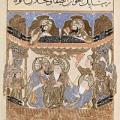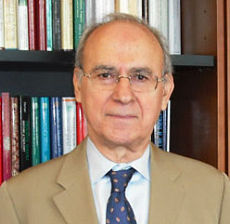136 - Farhad Daftary on the Ismā'īlīs
Posted on
Peter is joined by Farhad Daftary, a leading expert on the Shiite group known as the Ismā'īlīs.
Themes:
Further Reading
• F. Daftary, The Ismailis: Their History and Doctrines (Cambridge: 1990).
• F. Daftary, The Assassin Legends: Myths of the Ismailis (London: 1994).
• F. Daftary, Mediaeval Ismaili History and Thought (Cambridge: 1996)
• F. Daftary, A Short History of the Ismailis (Edinburgh: 1998).
• F. Daftary, Intellectual Traditions in Islam (London: 2000).
• F. Daftary, Ismaili Literature (London: 2004).
• F. Daftary, A Modern History of the Ismailis: Continuity and Change in a Muslim Community (London: 2011).







Comments
Thanks to the Programme Owners, interviewer and the very respect
Farhad Daftary deserves my hearty commendations and appreciation, as a believer in Ismaili-Islam and a formal community-teacher and a student of Ismaili thought and history, for his clarity of thought and the grounded research, as he speaks with ease in that light, on the subject in the Programme.
Sir Farhad Daftari,
Sir Farhad Daftari,
Thank you so much for enlightening us. Keep guiding us dear sir, we youth really need your endorsments..
Add new comment